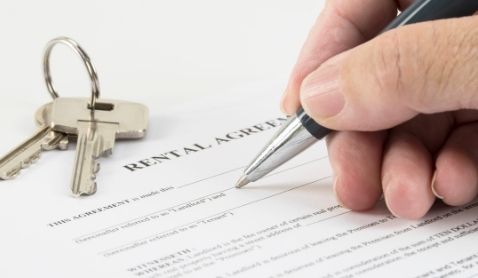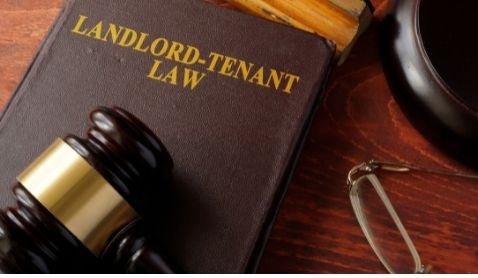Virginia Beach Real Estate Lawyers
Purchasing a home or property can be a significant financial transaction, especially if it involves a family or an individual. However, that is only a portion of what real estate law encompasses. None of these interactions are simple. There are complex details that require an experienced and knowledgeable real estate lawyer to help the process move quickly and smoothly.
There are a wide range of transactions a real estate lawyer can assist individuals, companies, and families with when it comes to ownership of property or buildings. Those transactions are:
- Purchasing property
- Selling property
- Leasing property
- Negotiating and drafting leases
- Eviction proceedings
What Steps Do I Need to Take to Purchase Property?
There are several steps that an individual or business must take when buying either a home or property. They must first have an experienced professional conduct thorough and proper inspection of the property or building that is being purchased. This is a critical step as failure to do this could result in expensive problems in the future.
It is also important that the contract outlining the purchase of the property is fair and reasonable. No one should enter a contract that they cannot fulfill. In other words, if the cost for the purchase is beyond a person’s means, they should not move forward. A lawyer will be able to assist in all facets of this process to protect the client from future problems and to help negotiate a contract that is within the buyer’s budget and in line with their expectations. There are several specifics that a lawyer will assist throughout the purchasing process, such as:
- Examining the title and provide advice on whether the property is marketable and/or insurable by a title company.
- Contacting the lender to obtain loan documents, review their instructions, and coordinate the closing process.
- Completing all contract and lender requirements.
- Consulting with the buyer to review and sign all closing documents.
- Coordinating the purchase of necessary title insurance coverage.
- Ensuring the recording of all required documents in the appropriate Circuit Court Clerk’s Office.
- Disbursing all payments and fees to complete closing as required by the lender.
- Advocating for the buyer in resolving any disputes.
The purchase of a building or property can be a long and winding road with several unforeseen obstacles. Having a lawyer on hand will help to handle those situations when they arise.
When Should I Hire a Lawyer When I Sell My Home?
Selling a home or property is a major change in a person’s life. It can be one of the most exciting times, but also one of the most terrifying times as well. The selling process can come with its own brand of unexpected complications. Working with an experienced lawyer will protect the seller from future problems as they arise.
Not all real estate transactions are simple. There are those that come with complications that a lawyer will be essential in helping a seller through. Those special circumstances include:
- Liens: A lien is a security interest taken out on a property to guarantee payment of a debt. It is usually placed on a possession if a person is behind on payments for another debt. If there are unresolved liens on a property that is being sold, a lawyer can help resolve them to pave the road toward a closing. They will work with the title company to guarantee that all lien holders get paid correctly.
- Joint sale: When a person is selling a property with someone who is not their spouse, a lawyer will help make sure that their client’s interests are equally represented. It is best that each seller hires their own lawyer.
- Short sale: In a short sale, a financially distressed homeowner sells their home for less than the amount left on the mortgage. Under these circumstances, there are extra hurdles to jump over. It will help to have a lawyer on hand who can assist in that process.
- Estate sale: There are times when a family must sell an inherited home, meaning that the ownership history can become difficult to manage. A lawyer will handle sorting through those documents so that the family can deal with their emotions after having lost a family member.
In general, a lawyer will work to represent a seller’s desires when it comes to closing on a property or house. They will be there throughout the process in case any problems arise. The benefits of hiring a lawyer include:
- Assurance of buyer: A seasoned real estate lawyer will be able to gauge the sincerity and reliability of the buyer.
- Protecting rights: A lawyer will represent the rights of the seller throughout the process. Their knowledge of real estate law gives them insight to any tricks the buyer may be attempting to put over.
- Title issues: When selling a home, it is imperative that the title of the property be clean in that there are no problems with the owner, the property, or its history. If those do arise, it does not necessarily stop a deal, but it could complicate things. A lawyer will work to resolve those issues as quickly as possible to allow the closing to proceed.
- Sales contract: A lawyer will help pen the contract between the buyer and seller to guarantee that the seller’s desires are met and that there are no lingering problems that need to be resolved in the future. A lawyer can also include any special conditions or circumstances that the seller requests while keeping an eye out for any unreasonable language the buyer wishes to include.
How can a Lawyer Help if I Want to Lease My Property?

Another aspect of owning property or a building is the intention of leasing it. There are a variety of circumstances that will lead an owner into a leasing arrangement. There could be a significant financial benefit to a landlord who leases their commercial property, apartment building, or home. However, when a person does lease property to another, there could be additional complications that arise. There are certain obligations that a landlord, who is the property owner, must meet, while there are obligations that the tenant, or the person leasing the property, must also adhere to.
It is important that a landlord understands their rights and obligations when it comes to leasing agreements. An experienced real estate lawyer can advise them on these rights and tell them what they need to do to follow the law and what they are allowed to enforce.
How Important is the Lease When Renting Out My Property?

The leasing contract is the most important aspect between the landlord and tenant. This is the point where both sides will establish the parameters of their professional relationship and lay out the conditions the two are willing to abide by to move forward with the transaction.
Generally, the contract will establish the monthly rent that the tenant will agree to pay, while in exchange, the landlord will agree to provide certain services. The greater the detail included in the contract, the better. Any ambiguities can lead to serious difficulties, as well as an interpretation that is inconsistent with a landlord’s intent. When a landlord hires an experienced lawyer to draft a lease, they can be confident that their interests are protected and that the lease accurately and fully reflects the landlord’s wishes.
What Does a Landlord Need to Disclose When Leasing Property?
The Commonwealth of Virginia has an assortment of requirements that a landlord must meet when leasing a property. Most of these disclosures must take place when the two sides are negotiating the lease. The disclosure includes:
- Security deposits: What the amount of the security deposit will be and how the landlord will return it after the end of the contract.
- Fees: Whether the landlord will include any non-refundable fees, such as cleaning fees.
- Existing damages: A new tenant should be given a checklist that the property was inspected. This allows for a record of damage that occurs after the tenant takes over the property.
- Move-out rights: This states that the tenant has the right to be present during a move-out inspection of the rental property.
- Landlord-tenant law: Details on this include any local rent control rules
- 396+Shared utility arrangements: These arrangements include details on how the landlord and tenant will split the monthly payments for utilities.
- Smoke detectors: The lease should include details about the installation and maintenance of smoke and carbon monoxide detectors and alarms.
- Environmental concerns: They must disclose any potential environmental and health hazards, such as lead-based paint, mold, radon, and bed bugs.
- Landlord’s identity: This includes the name of the landlord, as well as the person authorized to receive legal papers and manage the premises, such as a property manager.
- Flood history: This should describe if there was recent flooding in the unit or if the unit is in a flood zone.
- Smoking policy: This includes what the smoking policy is around the building and in the unit.
- Prior criminal history: They must specifically disclose the presence of a methamphetamine laboratory at the rental prior to the tenant’s occupancy.
- Outstanding violations: If there are any outstanding building inspections, condemnation orders, or housing code violations.
- Domestic violence victim rights: There must be a description of what rights a victim of domestic violence has under federal and state laws.
As part of the lease, Virginia landlords must offer their tenants a statement of tenant rights and responsibilities developed by the Department of Housing and Community Development. Upon signing the lease, all involved must sign a form acknowledging that the landlord provided these two documents to the tenant.
The landlord has one month upon signing the lease to provide the tenant with the statement of tenant rights and responsibilities. If a landlord fails to provide these important documents to the tenant, they will be unable to file any lawsuit against the tenant if there is a violation in the contract.
What is the Process of Evicting My Tenant?

Even when a lease is detailed, a situation can arise where it becomes necessary for a landlord to sever the relationship with the tenant. Unfortunately for the landlord, the short-term ramifications of evicting a tenant for failing to hold up their end of a lease could be costly. It is best to know the eviction process ahead of time and a real estate lawyer can help a landlord through it as quickly as possible.
When a landlord wishes to evict a tenant from their building, they must first sever the tenancy. The landlord must have a legitimate legal reason for wanting to sever the relationship; they cannot do it simply because they do not like the person. Their only recourse for a tenant who abides by the terms of their lease is to wait for the agreement to end and to inform the tenant that the lease will not be renewed. Among the legal reasons that a landlord can evict a tenant include the tenant’s failure to pay rent or a specific violation of the lease or rental agreement. The landlord also has the authority to evict if the tenant is guilty of committing an illegal act, such as drug use or possession on the premises. The 2020 novel Coronavirus (COVID-19) pandemic has motivated Virginia to modify its laws making it more difficult for landlords to evict tenants who are delinquent on their rent payments. The landlord still has the authority to evict, but they must now give additional time and options to the tenant.



